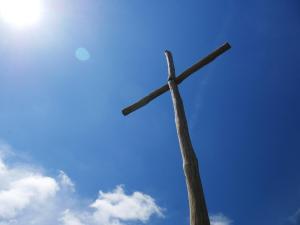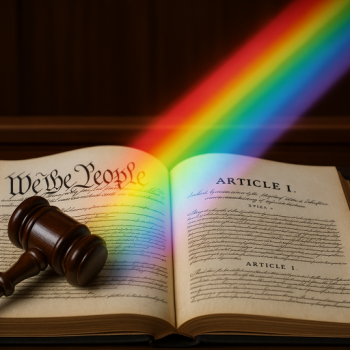The archdiocese of Milwaukee leads the way for the rest of American Catholic Churches regarding gender ideology in the United States. The recently released document, Catechesis and Policy on questions Concerning Gender Theory, provides the single most concise Catholic position on gender theory currently available. Furthermore, this document should serve as a framework for the United States Conference of Catholic Bishops’ response to the gender identity crisis in the Church. Personally, speaking as a youth volunteer at my local parish, this issue has reached critical mass.
The below excerpts, taken from this document, demonstrate the proper Catholic approach to the current gender identity crisis.
“A Unified Creature Composed of Body and Soul”
After the Preface on objective truth, the next section turns to catechesis on sex and gender. The Catholic Church teaches the resurrection of the “body.” Therefore, the nature of this “body” is of the greatest importance. What “body” will eventually resurrect?
2.1 The Church teaches that the human person, created in the image and likeness of God, is a “unified creature composed of body and soul.” The soul is the spiritual principle of each human person and the “subject of human consciousness and freedom.”6 Yet man is truly himself only “when his body and soul are intimately united.”7 The human person is not a soul or a mind that has a body merely as a biological accessory.
Rather, the human person is a body formed by a soul.8 Human life and love are “always lived out in body and spirit,”9 and thus the body is a “vital expression of our whole being.”10 So integral, in fact, is the body to who we are as human beings that the body and soul together are fashioned and “destined to live forever.”11 The creed expresses a belief in the “resurrection of the body,” or the belief that all persons will “rise again with their own bodies which they now bear.”12 The body which will one day rise is the very body which each person received as a gift and in which each person lives out his vocation to holiness.13
“Our Biological Sex…is Unchangeable”
The document then affirms that biological sex, as a gift from God, is unchangeable. As created physical beings, God intentionally made us with our biological sex in mind.
2.2 Our biological sex, expressed by our body, is a gift from God and is unchangeable. A person’s biological sex is expressed in and through the body. It cannot be changed because it is bestowed by God as a gift and as a calling, and “the gifts and the call of God are irrevocable.”14 Biological sex is a gift because in the very act of creation, God bestows upon each human person a biological sex—“Male and female he created them”15 —two sexes that are different, equal, and complementary. 16 It is a calling because we work out our salvation via our masculinity or femininity. In other words, human persons do not experience the freedom and joy of salvation despite their biological sex, but only in it and through it.
“Respect for Biological Sex”
Finally, the catechesis teaches we must respect, as a gift, the body God provided us. To deny the reality of such is to deny the gift God has given.
2.4 Respect for creation is also a respect for one’s biological sex. As Pope Francis writes, “It is enough to recognize that our body itself establishes us in a direct relationship with the environment and with other living beings. The acceptance of our bodies as God’s gift is vital for welcoming and accepting the entire world as a gift from the Father and our common home, whereas thinking that we enjoy absolute power over our own bodies turns, often subtly, into thinking that we enjoy absolute power over creation.
Learning to accept our body, to care for it, and to respect its fullest meaning, is an essential element of any genuine human ecology. Also, valuing one’s own body in its femininity or masculinity is necessary if I am going to be able to recognize myself in an encounter with someone who is different. In this way we can joyfully accept the specific gifts of another man or woman, the work of God the Creator, and find mutual enrichment. It is not a healthy attitude which would seek ‘to cancel out sexual difference because it no longer knows how to confront it’.” 25
Practical Gender Policies
Moreover, the document concludes with the implementation of policies regarding gender in the archdiocese. These policies reflect a consistence approach to how the Catholic Church must address the current gender crisis. Every US diocese must implement these policies (or similar ones).
Pronouns
3.1 Designations and Pronouns. Any parochial, organizational, or institutional documentation which requires the designation of a person’s sex is to reflect that person’s biological sex.
Bathrooms and Locker Rooms
3.2 Bathrooms and Locker Rooms. All persons must use the bathroom or locker room which matches their biological sex.
Dress
3.3 Attire. All persons are to present themselves in a manner consistent with their God-given dignity. Where a dress code or uniform exists, all persons are to follow the dress code or uniform that accords with their biological sex.
Sport and Competition
3.4 Athletics and Extra-Curriculars. Participation in parish, school, and extra-curricular activities must be conformed with the biological sex of the participant. Some sports and activities may be open to the participation of individuals of both sexes.
Single Sex Schools and Camps
3.5 Single-Sex Schools, Buildings, and other Programs and Institutions. Admission to single-sex programs, including but not limited to single-sex schools, camps, and retreats, is restricted to persons of the designated biological sex. Dormitories or other single-sex buildings are restricted to persons of the designated biological sex.
Puberty Blockers and Gender Reassignment
3.6 Medication. No person is permitted to have on-site or to distribute any medications for the purpose of gender reassignment. Also, students and those entrusted to the care of the Church are not permitted to take “puberty blockers,” even if self-administered, on parish or school property, with the purpose of a potential or actual “gender reassignment.”
Proper Counselling
3.7 Protecting the Vulnerable. Those entrusted to the care of the Church who express a tension between their biological sex and their “gender” and others directly affected by this tension (parents, guardians, etc.) should be directed to appropriate ministers and counselors who will help the person in a manner that is in accord with the directives and teachings of the Church. Parishes, schools, and other Catholic institutions or organizations should take the necessary precautions, in accord with the policies of this document, to avoid bullying and to protect the integrity of those who may express tension or concerns about their biological sex.
The Complete Catholic Teaching on Sex and Gender
To conclude, the document draws from many and diverse Catholic sources. The Bible, papal encyclicals, the writing of St. Thomas Aquinas, Church Councils, and the Catechism of the Catholic Church. It draws on multiple sources to show the full weight of the Catholic position on sex and gender. This position stands in stark contrast to the current cultural obsession with gender denial. Furthermore, the Church needs a united front to help stem the tide of the current cultural obsession with gender denial.
Thank you, Archdiocese of Milwaukee, for leading the way!
Like what you read? Please check out my other writing here.
Please like and follow me on Facebook and Twitter.












